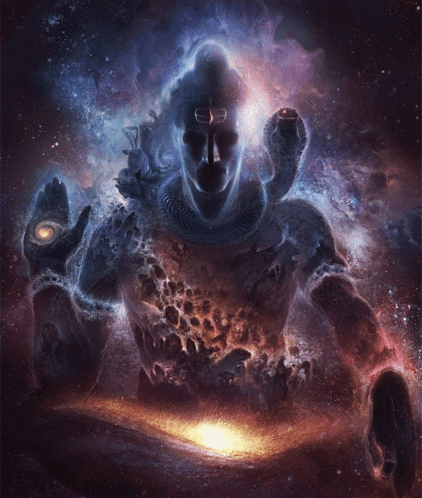Many of you have known me for my ability to process and post an insane quantity of posts in a short time frame, but that was merely the expression of my Asperger's at play.
Free will as an illusion
Modern experiments in neuroscience have repeatedly shown that neural signals predictive of a future thought or action can be detected before a person is consciously aware of having made a decision.
Neurons exchange signals at a neuronal level and our consciousness emerges as a consequence of their exchange, so while we think we are in command via our consciousness it's less simple than that, because our future thoughts and actions "begin" at a low-level neural circuitry inside our brain.
How much our consciousness can help initiate our future thoughts and actions is still a matter of debate, but its emergence, originally, is still bound to those low-level neuron exchanges.
No theory of everything
While it might be that in the future there will be interesting findings on how to reconcile gravity with quantum mechanics, perhaps by considering quantum mechanical events as occurring following a spacetime geometry that has both continuous and discrete properties, humans will never understand the full scale of their capability to understand reality and what might or not trascend their capability to understand it.
A true objective scientist understands that "cogito ergo sum" combined with a solipsistic view is as far as one can go when it comes to absolute proof of what can be really understood about reality by a human. Our exercise to make hypotheses, theories, experiments and observations all lack absolute proof of the true nature of reality. They give us informations that are either non trivial or trivial about its unpacking, we just don't know.
Rejoyce, or perhaps not, because when you die, it might not be it for your consciousness. Perhaps everything will end at any time, there's an unknown probability that can happen just like there's an unknown probability that Toriyama is still alive in another universe.
Consciousness in artificial intelligence
There's no accepted framework to what it takes to have a conscious being with a level of consciousness comparable to human level or exceeding, this remains an open question scientists are working on. New computer architectures exploring the human brain, such as in neuromorphic computing, aim to bridge the gap between electronics and the human brain, but sufficiently powerful and sophisticated parallel processing in current mainstream architectures involving GPU and TPU clusters to train large-scale neural networks that are increasingly complex and inspired by the structure and function of the human brain is also an approach being explored, so is quantum computing-based machine learning.
Ultimately however, we don't even have absolute proof that other people are conscious beyond ourself.
And this is just a taste of my ability to understand fundamental matters. If you want more please just ask... you're welcome, thank you...

Tags:
Free will as an illusion
Modern experiments in neuroscience have repeatedly shown that neural signals predictive of a future thought or action can be detected before a person is consciously aware of having made a decision.
Neurons exchange signals at a neuronal level and our consciousness emerges as a consequence of their exchange, so while we think we are in command via our consciousness it's less simple than that, because our future thoughts and actions "begin" at a low-level neural circuitry inside our brain.
How much our consciousness can help initiate our future thoughts and actions is still a matter of debate, but its emergence, originally, is still bound to those low-level neuron exchanges.
No theory of everything
While it might be that in the future there will be interesting findings on how to reconcile gravity with quantum mechanics, perhaps by considering quantum mechanical events as occurring following a spacetime geometry that has both continuous and discrete properties, humans will never understand the full scale of their capability to understand reality and what might or not trascend their capability to understand it.
A true objective scientist understands that "cogito ergo sum" combined with a solipsistic view is as far as one can go when it comes to absolute proof of what can be really understood about reality by a human. Our exercise to make hypotheses, theories, experiments and observations all lack absolute proof of the true nature of reality. They give us informations that are either non trivial or trivial about its unpacking, we just don't know.
Rejoyce, or perhaps not, because when you die, it might not be it for your consciousness. Perhaps everything will end at any time, there's an unknown probability that can happen just like there's an unknown probability that Toriyama is still alive in another universe.
Consciousness in artificial intelligence
There's no accepted framework to what it takes to have a conscious being with a level of consciousness comparable to human level or exceeding, this remains an open question scientists are working on. New computer architectures exploring the human brain, such as in neuromorphic computing, aim to bridge the gap between electronics and the human brain, but sufficiently powerful and sophisticated parallel processing in current mainstream architectures involving GPU and TPU clusters to train large-scale neural networks that are increasingly complex and inspired by the structure and function of the human brain is also an approach being explored, so is quantum computing-based machine learning.
Ultimately however, we don't even have absolute proof that other people are conscious beyond ourself.
And this is just a taste of my ability to understand fundamental matters. If you want more please just ask... you're welcome, thank you...

Tags:






